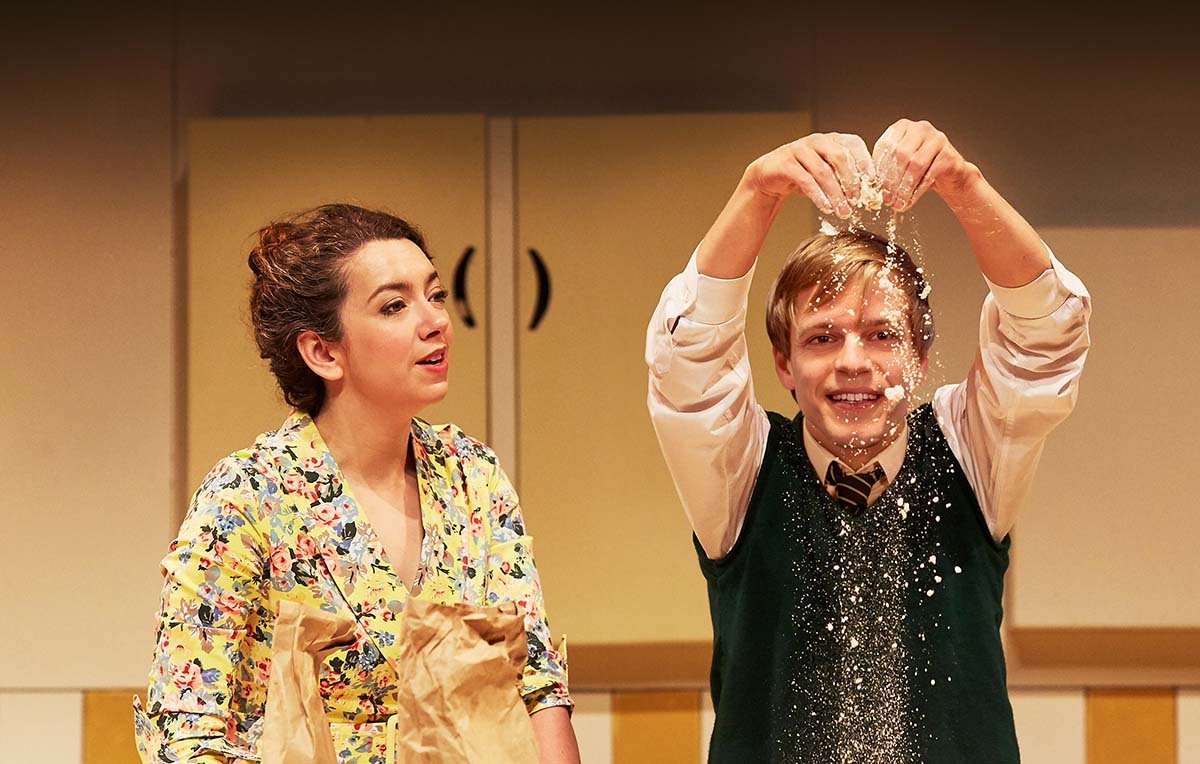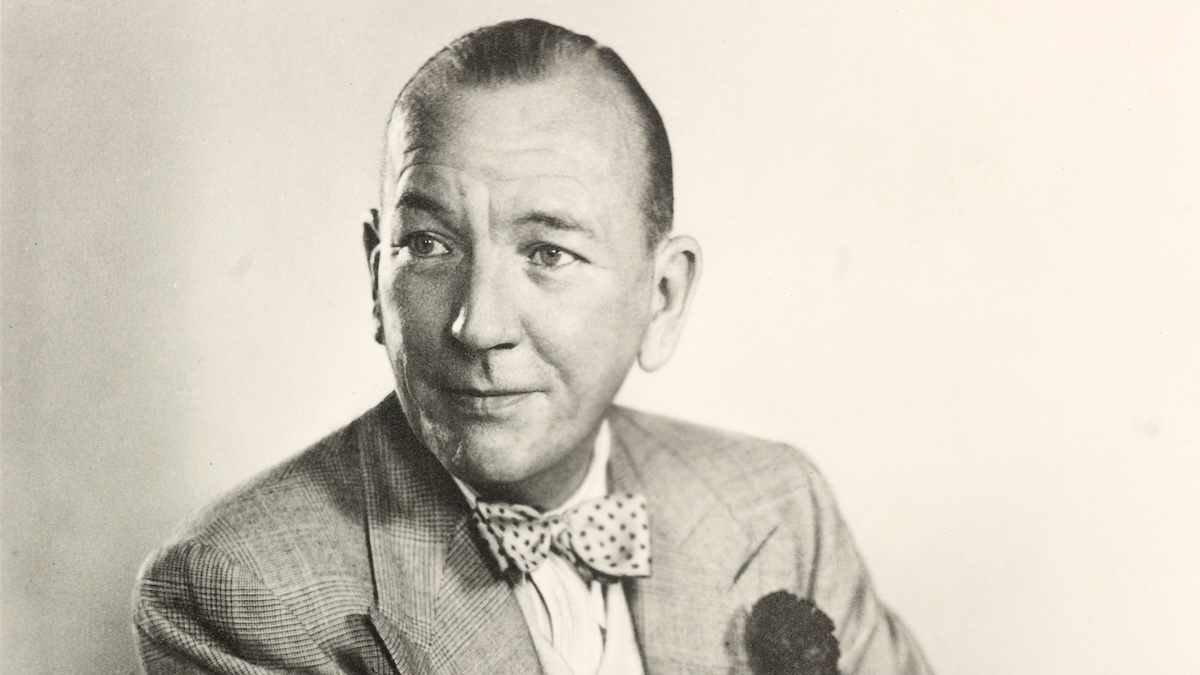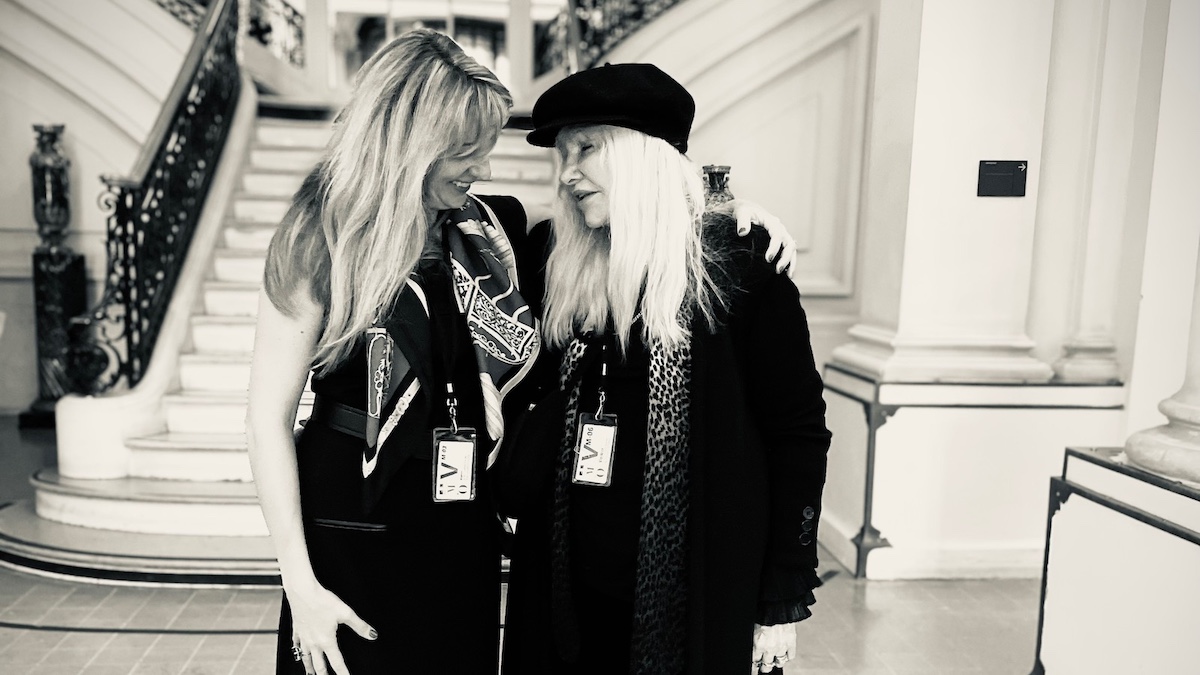
Henry Filloux-Bennett has worked as a playwright, director and producer, and is now the Director and Chief Executive of the Lawrence Batley Theatre. After a UK-wide tour, Henry’s critically-acclaimed stage adaptation of Nigel Slater’s Toast transferred to the West End. We caught up with Henry to hear more about writing the show, what audiences can expect from the experience, and advice for companies who might be interested in performing the play in future.
What was it about Nigel Slater’s autobiography Toast that especially made you want to create an adaptation for the stage?
I first read Toast before it had been adapted for the screen or radio, when I was working in a kitchen. Aside from the story itself, which I loved, it felt to me immediately like it had to be brought to life so that people could taste all of the amazing things that Nigel talks about in the book. So many of the flavours in the book – everything from butterscotch Angel Delight to lemon meringue tart – are ones that you can immediately imagine, and the possibility of telling the story but also sharing those actual flavours was something I really wanted to explore.
How did you go about the creative process of writing the adaptation? Was it challenging to decide which material to include and which to leave out?
I had seen Frantic Assembly’s Things I Know to be True whilst I was starting to think about how we might be able to stage the play – I loved it so much that I went three times, and I knew that that really physical staging was something I really wanted to give to the play. So what I did was write with that sort of an approach in mind: I purposefully gave very few stage directions, and we don’t have any ‘scenes’ in the play. I wanted the experience to be as fluid as possible. The challenge of what to keep in and what to leave out was a really tough one, and there were a number of conversations with Nigel, James [the production’s Food Director] and Jonnie [Director] to work out what food to include, but essentially we wanted to tell the story of a boy’s childhood, so that was the narrative framework for deciding what ‘ingredients’ we’d keep in.
How does food feature in the production?
We wanted Toast to be a play that you could literally taste, and smell. So food is involved in the show at various points, but I don’t want to ruin the surprise, so I won’t say exactly when and how food is incorporated. Maybe just don’t eat pudding before you come to the theatre…
The show has played at the Edinburgh Fringe, on tour, and in the West End. Can you share an insight into how the script evolved through its various productions?
We were incredibly lucky to be able to have a huge amount of development time for the script. We had a week-long workshop when we played around with various ideas; from that, the first performance script was written for The Lowry, which was where the production started. Since then, it has changed a little, but it has mostly been cuts or additions based on the original Lowry script. For Edinburgh, we had to cut it down to 80 minutes (down from 140 minutes!) and then for The Other Palace we have added back in some of the scenes that we loved but missed out on in Edinburgh.
Do you have a favourite moment in the West End production?
My favourite moment has always been a dance that takes place between Mum and Nigel, which is actually nothing to do with the book. It’s based on one specific song, and it’s based on my Grandfather teaching my Mum to dance. What Jonnie [Director] has managed to do with that scene is absolutely beautiful. It absolutely works as a moment between mother and son here, but for me it has always been a lot more than that.
Do you have any advice for [amateur and student] companies looking to stage the play in future?
Be bold! This is a play that is purposefully light on stage directions, and the hope is that companies in the future will bring their own take on the story.
What can audiences expect from the play?
Toast is a fantastic story – a story about finding your place in the world, about some of the tastes and smells that define so many people’s childhoods, but most of all, it’s about the relationship between a mum and her son. There’s some of the most incredible music [from Sound Designer Alexandra Braithwaite)], there are some funny moments, but there are also some really beautiful moments when a tissue might come in useful.
Can you tell us what you’re working on next?
I’ve been lucky enough to be commissioned to work on another adaptation, which will hopefully be coming to the stage next year – it’s about as far removed from Toast as possible…
Want to perform the show? Request a licence and buy the script.

Noël Coward’s Travels

Kate Chopin in New Orleans: Mother-Daughter Author Duo Collaborate on Historical Book

